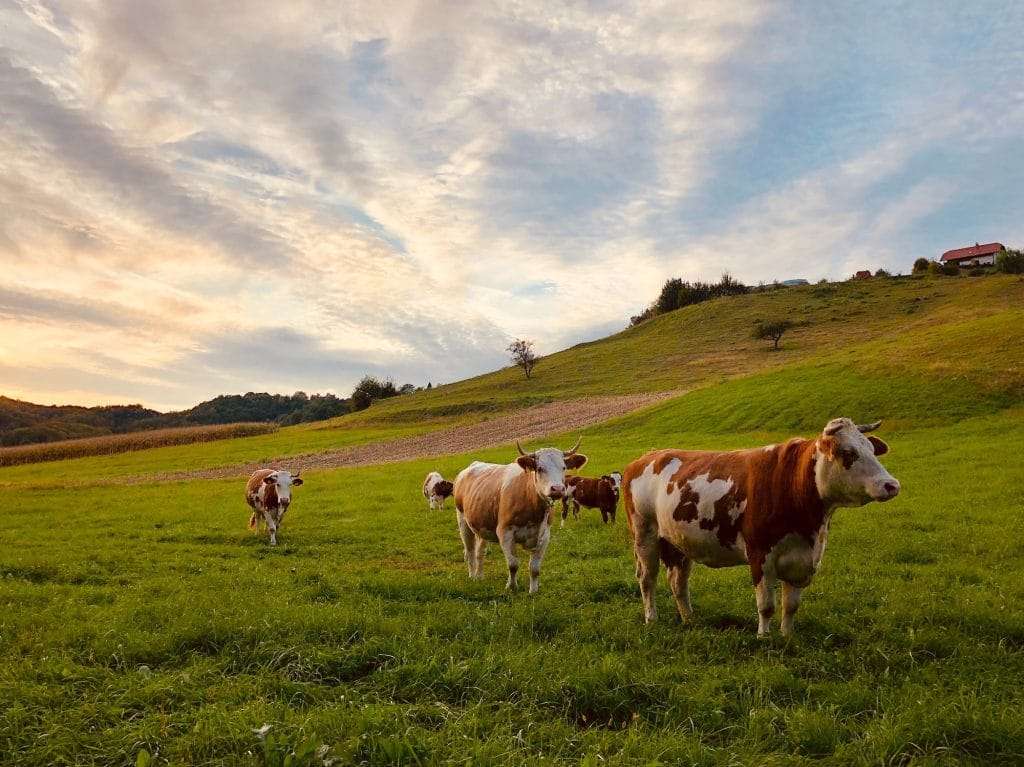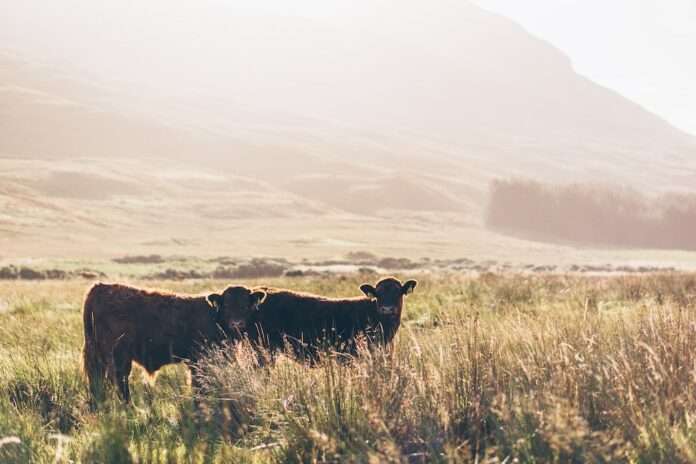The average flight from Paris to New York takes around eight hours, costs a few hundred dollars, and requires the fat of around 8,800 dead pigs. Sorry, what?
Most of us don’t associate animal products with planes (unless they’re being served from a trolley), but, it turns out, pig, cow, and chicken fat is being increasingly used to make jet fuel. (Note: the above figure is how many pigs would be required if all the fuel came from animal fat, which is not the case right now.) It’s allegedly a greener option, as it presents an efficient method of using up waste from the animal agriculture industry.
But is it really that simple? After all, animal agriculture actually emits more greenhouse gasses than the entire aviation industry.
Can pig fat really help make aviation more sustainable?
Planes run predominantly on kerosene, a petroleum-derived combustible hydrocarbon liquid, which, undeniably, is bad for the planet. For every kilogram of kerosene fuel combusted in a jet engine, more than three kilograms of carbon dioxide are emitted into the atmosphere.
This is a major problem, and it’s a big part of the reason why aviation is responsible for more than two percent of global emissions. But turning to animal fat may not be the answer.

Demand for animal byproduct fuel is expected to triple over the next seven years, and that’s largely because airlines are trying to swap to more sustainable choices. But, according to a new study, the truth is, there just aren’t enough animals on the planet to sustain the growing demand. And breeding more would just create further problems.
Already, animal agriculture is responsible for around 14.5 percent of global greenhouse gas emissions, plus, it contributes to a multitude of other environmental issues, including high levels of destructive deforestation.
This has led many experts around the world to call for a drop in meat consumption. In 2022, for example, one study from the University of Bonn claimed that meat consumption must drop by 75 percent in rich countries to help reduce the strain on the environment.
‘There’s not a never-ending supply of animals’
Many advocates for sustainable aviation also accept that animals are not a good example of a renewable resource. Speaking about the rise in demand for animal fat in fuel, Matt Finch of Belgian clean transport campaign group Transport & Environment told the BBC: “There’s not a never-ending supply of animals or animal fat.”
Because of this indisputable fact, the group is concerned that this will lead airlines to other non-sustainable choices, like palm oil. Like animal agriculture, the latter is also linked with significant deforestation.
“Aviation indirectly, will [then] be responsible for increasing the amount of palm oil being pulled through the European systems,” Finch added.

So how can aviation improve its environmental impact? In a nutshell, it’s complicated, but there has been progress.
Last October, for example, the world’s first all-electric passenger plane, developed by Israeli company Eviation and called The Alice, took its maiden voyage, which lasted for eight minutes.
“This is history,” said Gregory Davis, Eviation’s president and CEO, to CNN at the time. “We have not seen the propulsion technology change on the aircraft since we went from the piston engine to the turbine engine. It was the 1950s that was the last time you saw an entirely new technology like this come together.”
Animal agriculture doesn’t have a place in the future of sustainability
Aviation isn’t the only industry attempting to carve out more space for unsustainable animal products.
Just recently, a new initiative called the Deforestation-Free Call to Action for Leather was announced by two nonprofits, Textile Exchange and the Leather Working Group. The initiative is striving to make leather supply chains deforestation-free by 2030 and “promote sustainable practices with the leather industry.”

Reducing deforestation and improving transparency in supply chains is vital for the planet, but it’s not the only issue with the leather industry, and taking it away won’t solve all of leather’s environmental problems. Many experts have called for a shift away from bovine leather completely, due to its link with rising emissions, for example.
Over the course of one year, one cow will emit around 220 pounds of methane, a greenhouse gas far more potent than CO2. And, according to People for the Ethical Treatment of Animals, more than one billion cows are killed for the leather trade every year.
How you can help? Embrace plant-based
The exploitation of animals and the degradation of the environment has become interwoven in so many industries, but there are things that we can do as individuals to help reduce our impact on the planet.
We can boycott new leather goods, for example, and reduce the number of flights we take. And we can also change what’s on the plate. Because, as one University of Oxford study suggested in 2018, going vegan is the single biggest change a person can make to reduce their impact on the planet. For guidance, find our plant-based tips here.
Related on Ethos:


